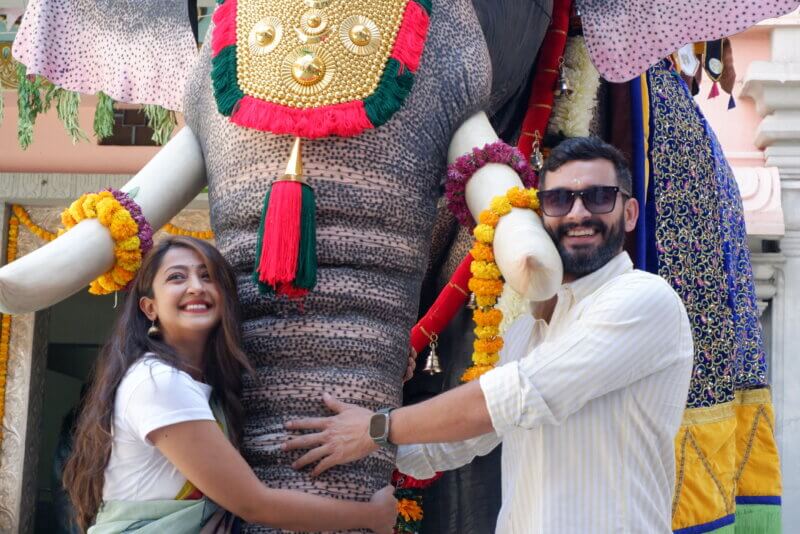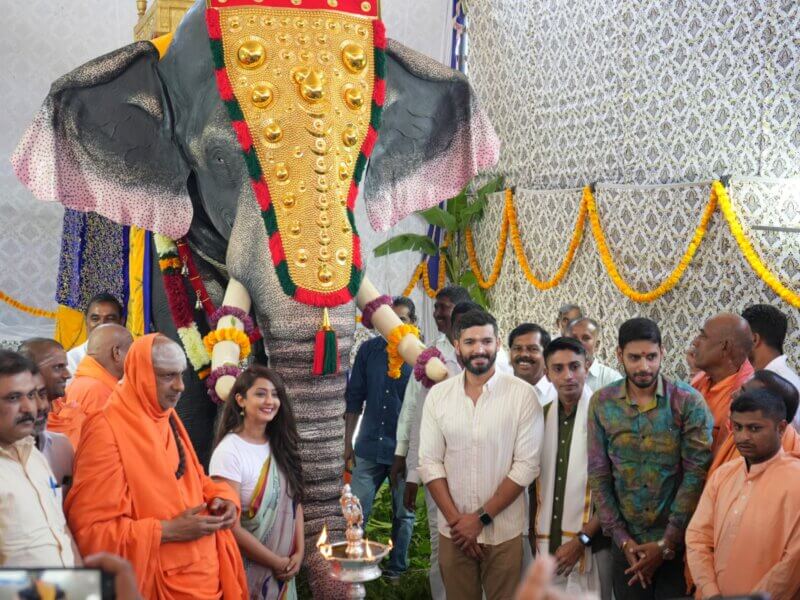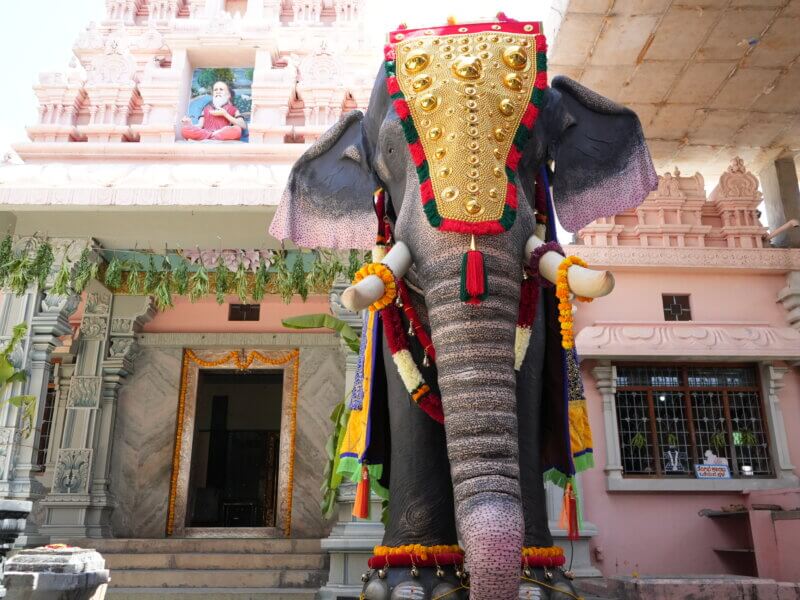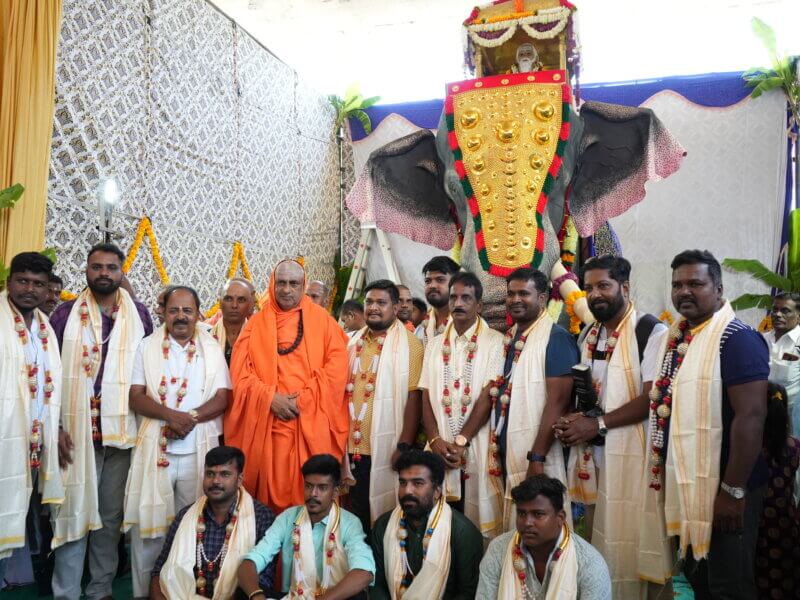Actors Aindrita Ray and Diganth Manchale Join PETA India in Donating a Life-Size Mechanical Elephant to Mysuru’s Sri Suttur Math
Actors Aindrita Ray and Diganth Manchale, along with PETA India, have donated a life-size mechanical elephant called Shiva to the Jagadguru Sri Veerasimhasana Mahasamsthana Math (Sri Suttur Math) near Mysuru in Karnataka, in recognition of the math’s decision never to keep or hire live elephants. Shiva, who is 3 metres tall and weighs 800 kilograms, will be used to conduct ceremonies at the math in a safe and cruelty-free manner, helping real elephants stay with their families in the jungle. An inaugural ceremony was held at the math, followed by a mangala vadhyam performance.
“With this mechanical elephant, cultural traditions can be modern, traditional, and kind. Diganth and I are proud to donate this technology with PETA India to the Sri Suttur Math so that devotees can participate in sacred customs in a safe and animal-friendly manner,” says Aindrita.
Diganth says, “Nowadays, we know that elephants should live with their families for their health and well-being. God created them this way, and so in respect of God, we must let them live free in their jungle homes. Mechanical elephant Shiva lets us do this while allowing auspicious ceremonies and events to continue.”
“We are very pleased to use mechanical elephant Shiva in reverence to all the animals created by God whom we must respect. Mechanical elephants are simple and cost-effective to use, as they do not require food or veterinary care, and they do not get upset or become dangerous,” says His Holiness Jagadguru Sri Shivarathri Deshikendra Mahaswamiji, the peetadhipathi of the Sri Suttur Math.
Nearly 32% of elephants in captivity in the country are being held in the southern states of Andhra Pradesh, Karnataka, Kerala, and Tamil Nadu. Most of them are kept illegally or have been transported to a different state without permission. Because elephants are wild animals who would not willingly obey human commands, when used for ceremonies, rides, tricks, and other purposes, they are trained and controlled through beatings and the use of weapons. Many have extremely painful foot ailments and leg wounds from being chained on concrete for hours on end, and most do not get adequate food, water, or veterinary care, let alone any semblance of a natural life.
The frustration of captivity leads many elephants to develop and display abnormal behaviour. At their wit’s end, frustrated elephants often snap and try to break free, running amok and harming humans, other animals, and property. According to figures compiled by the Heritage Animal Task Force, captive elephants killed 526 people in Kerala in a 15-year period. Thechikottukavu Ramachandran, who has been in captivity for about 40 years and is one of the most famous elephants used in Kerala’s festival circuit, has reportedly killed 13 individuals – six mahouts, four women, and three elephants.
View this post on Instagram
PETA India has already donated two life-size mechanical elephants – Irinjadappilly Raman to Irinjadappilly Sree Krishna Temple in Thrissur and Mahadevan to the Thrikkayil Mahadeva Temple in Kochi – in recognition of the temples’ decisions never to own or hire live elephants. Irinjadappilly Raman and Mahadevan are now used to conduct ceremonies at the temples and can be rented out for rituals, wedding processions, and other events.
PETA India encourages all venues and events using elephants to switch to lifelike mechanical elephants or other means in place of real elephants. PETA India advocates for elephants already in captivity to be retired to sanctuaries where they could live unchained and in the company of other elephants, healing psychologically and physically from the trauma of years of isolation, captivity, and abuse.









